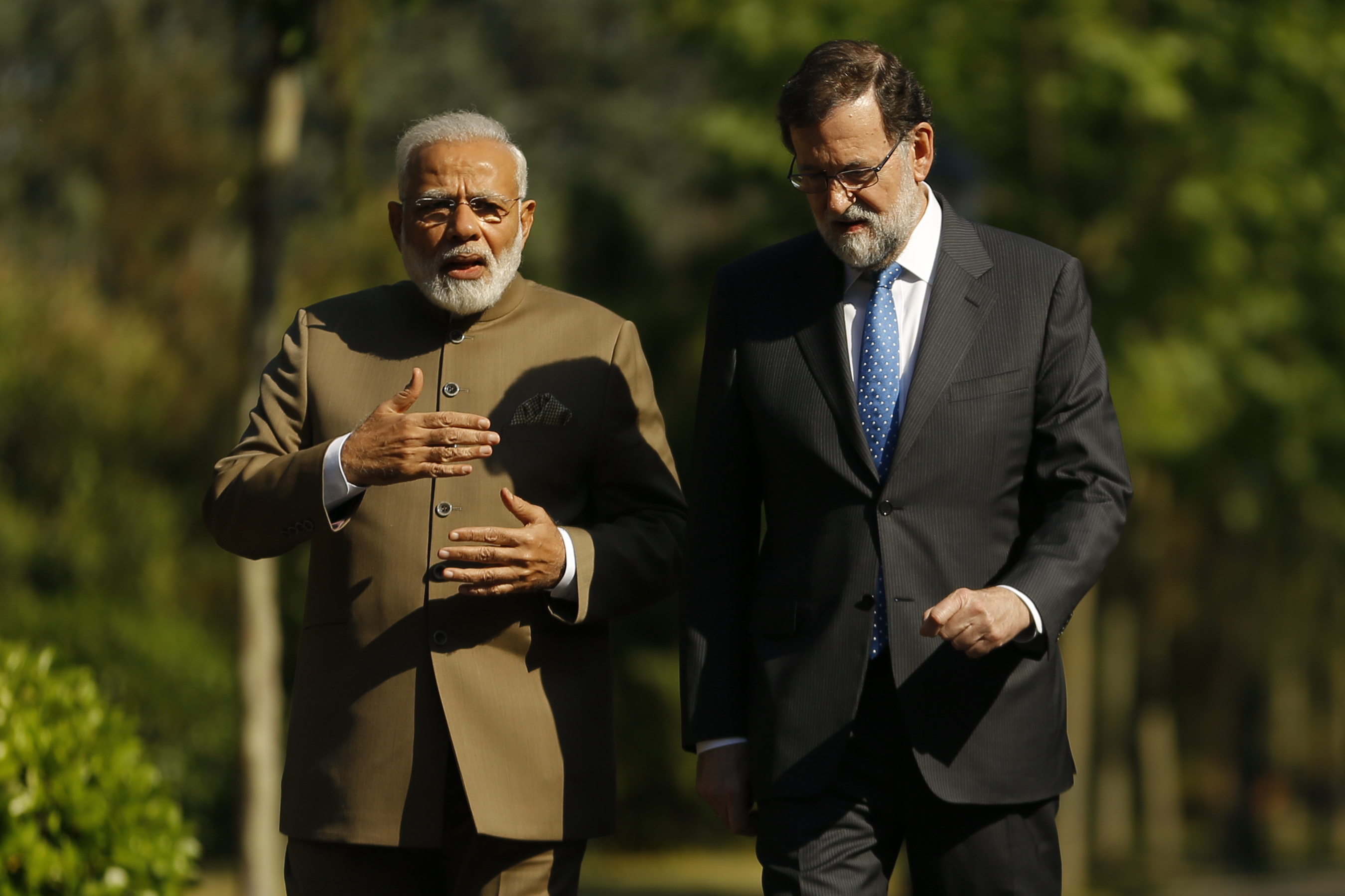Prime Minister Narendra Modi was in Spain on Wednesday. This was his second stop on the six-day, four-nation tour of Europe.
In a joint statement after long hour discussions and talks both the leaders, Narendra Modi and Spanish President Mariano Rajoy together agreed and repeated their commitment to the freedom of navigation and overflight and unobstructed commerce based on the principles of international law, as reflected in the United Nations Convention on the Law of the Sea (UNCLOS). They even stressed on the importance of resolving the disputes in the strategic South China Sea.
They urged all parties to resolve disputes peacefully, without the threat of using forces. They further added that all the parties should practice self-restraint in the conduct of activities, and avoid unilateral actions that raise tensions.
While Modi was in Germany earlier this week, Merkel and Modi had touched upon the issue of freedom of navigation in international water there also. Both the leaders had underlined the importance of freedom of navigation in international waters, the right of passage and other maritime rights and obligations in accordance with the UN Convention on the Law of the Sea and other principles of international law.
China claims sovereignty over all of South China Sea. Vietnam, Malaysia, the Philippines, Brunei and Taiwan have counter claims. There are terrestorial dispute going on between South China Sea and East China Sea. Beijing has militarised many of the islands and reefs it controls in the region.
Both Modi and Mariano Rajoy, expressed great concern regarding the North Korea’s threatening activities of developing nuclear weapons and ballistic missile programmes, including uranium enrichment activities. They have urged North Korea to refrain itself from any such actions, which will hamper peace and stability around the world.
Modi and Rajoy also expressed their support for peace, stability, prosperity, security and integrity of Afghanistan.
The two leaders repeated their commitments regarding the implementation of the United Nations Framework Convention on Climate Change, its Kyoto Protocol and the Paris Agreement.
To guarantee one basic human right, which is the access to drinking water and sanitation, the leaders stressed upon the immediate need to implement a sustainable water management. Both the leaders encouraged the development of infrastructures and water services with the help of public-private partnerships, as well as to encourage the efficient use of water throughout the urban, rural and industrial sector and to promote waste water treatment.
Modi along with his Spanish counterpart Mariano Rajoy in Madrid signed seven agreements in different areas

